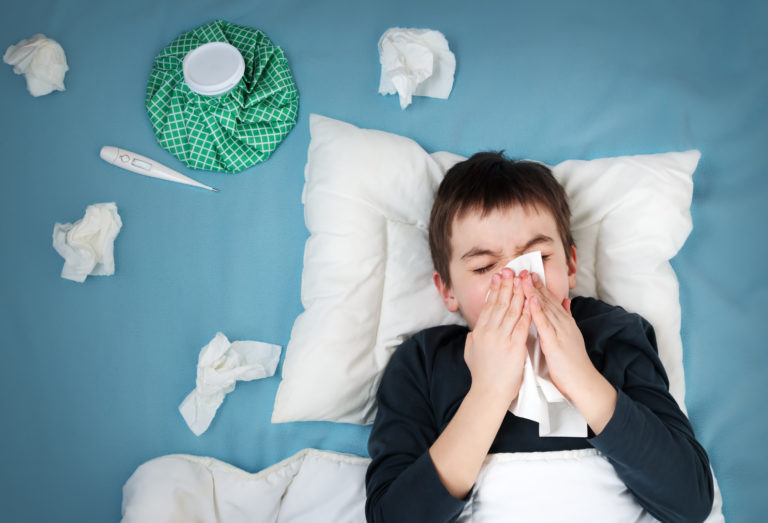Sick Days and Diabetes
Sick Day Checklist
What happens when insulin is already on board but food comes back up? What do you do if blood sugars stay high no matter what you do during illness?
Managing sick days can be challenging, and planning ahead can save you a lot of stress. Here are a few guidelines for managing type 1 diabetes on a sick day:
- NEVER skip insulin, even when not feeling well. Illness often causes an increased need for insulin.
- Check your child's blood sugar often -- at least every four hours. Every one or two is warranted if the blood sugar is changing. If you're using a CGM to monitor blood sugars, confirm concerns with a finger stick.
- Check for blood ketones. Checking for urine ketones is a good start, but not as precise as a blood ketone meter. It’s safer and more accurate than urine ketones.
- Small amounts of juice or regular soda can help keep blood sugar levels from dropping too low when eating is out of the question. Electrolyte drinks such as Gatorade or Pedialyte can help prevent dehydration.
- Learn about the Mini-Dose Glucagon Rescue for low blood sugar -- it may help prevent a trip to the hospital.
According to the American Diabetes Association, reaching out to the health care team is recommended if the following are present:
- Fever for two or more days.
- Vomiting or having diarrhea for 6 hours.
- Unable to keep any fluids down, even small amounts (sips) of clear liquids.
- Glucose levels are way over target range(ask your diabetes care team how high) even with additional insulin.
- Moderate or large ketones (blood ketones ³5mmol/L or moderate-large on urine strips)
- Any symptoms of dehydrationsuch as dry lips, dark urine, less urine than normal, dizziness or palpitations
- Any symptoms of ketoacidosis or DKA including rapid and shallow breathing, chest pains, fruity smelling breath, nausea or vomiting, or confusion
Clinically reviewed by Marissa Town, RN, BSN, CDCES


COVID-19 Concerns
People with diabetes are at a higher risk of infection and complications from any illness, and COVID-19 is no exception. We recommend:
- Make sure you have a diabetes emergency kit prepared, including a 90 day supply of medications if at all possible (contact your doctor regarding prescriptions, to see if they can help you obtain a 90 day supply)
- Review sick day rules
- Keep low blood sugar treatment tools on hand
- Update/obtain glucagon and ketone strips
Visit our Concerns About COVID-19 page for more information.
For More Information
- Hyperglycemia discusses guidelines for managing high blood sugar
- Hypoglycemia discusses guidelines for managing low blood sugar
- ISPAD Clinical Practice Consensus Guidelines 2018: Sick day management in children and adolescents with diabetes
Ask the DTeam
Check out dozens of sick day and diabetes questions submitted by our community and answered by our experts


